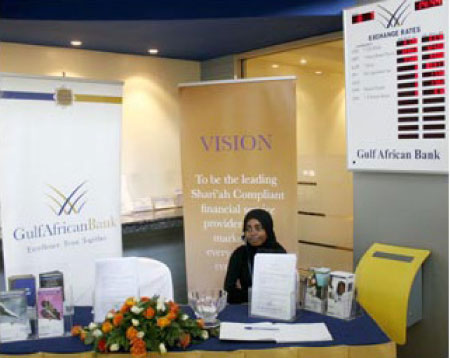
Islamic banking with interest-free loan is the latest and novel service or product being promoted in West Africa, as it is seen to have evolved as a viable and competitive component of the overall financial system to drive growth and development in the region and beyond.
A weeklong meeting was held recently in The Gambia by the West African Institute of Financial and Economic Management (WAIFEM) to promote Islamic Banking and its principles of interest-free loan for the people of the sub-region to have broad understanding of its operations so as to embrace it.
While this path is treaded by the region, it is prudent to weigh the pros and cons of the new baby being promoted by WAIFEM and some banking and financial luminaries in the sector, because what is right is not always expedient, and what is expedient is not always right and so we are advised to always do what is right.
The argument for Islamic Banking and its interest-free loan
Islamic banking as a variant of interest-free banking is a system of banking that is bound by Islamic law and prohibits the taking or payment of interest.
According to the Governor of Central Bank of The Gambia, Amadou Colley, there has been tremendous development in interest-free banking and “there are very strong indications that this growth will continue at a rapid pace” because there is “an expanding demand” for products of Islamic financial services, and a closely associated desire on the part of banks, including non-Islamic banks, to provide Islamic financial services.
Growth of Islamic banks outmarches conventional banks
According to Governor Colley, over the years, the growth of Islamic banks in terms of assets has over the years surpassed that of conventional banks.
“From 2007 through 2009, Islamic banks’ assets grew, on average, faster than conventional banks’ assets in major markets,” the CBG governor says. “This relatively higher rate of growth, along with the tendency to avoid excessive leverage and risk-taking, has given some consumers, even non-Muslims, a new appreciation of the sector.
“Currently, there are about 400 – 500 Islamic banks worldwide and together they manage close to $1 trillion worth of assets. This figure is estimated to rise to $4 trillion by 2020.
“The beginning of the millennium brought about fast development in Islamic financial products. Professional bankers and ‘Shariah’ experts have been breathlessly racing to invent new Islamic financial products that mimic or replace every single interest-based contract that comes in conventional market.”
The Middle East and the Asia pacific regions, with well developed Islamic financial systems, have enjoyed remarkable economic growth, due mainly to the Islamic finance activities. A case in point is Malaysia where Islamic banking has contributed positively towards its economic growth.
“Islamic banking is expected to give depositors another choice of where to invest their wealth,” said Prof. Akhan H. Ekpo, director general of WAIFEM.
“In our conventional banking environment, it is a fact that the borrowers are at times rendered miserable and frustrated leading to failure as a result of overbearing interest rates,” Prof. Ekpo explains. “The irony is that while lending rates are always in an upward trajectory, deposits rates are pitiably low. A case for non-interest or Islamic banking would therefore bridge this gap between the deposit and lending rate; more so, the non-interest (Islamic) banker sees the business of his client as his own, and does anything legally to ensure his client succeeds. Such conditions are unthinkable in the extant conventional banking. Here, the banker is a complete stranger, most times having a disposition that he is doing his client a world of good by lending to him.”
Islamic banking to check greed, selfishness, corruption in banking industry
Prof. Ekpo said if the non-interest banking regime is gradually built into the financial space, the issue of greed, highhandedness, selfishness and corruption would slowly be checked.
“The process of change may be slow and tough, but it would certainly be worth the trouble,” he added.
The argument against Islamic Banking and its interest-free loan or the caution advanced by other quarters
Ogundairo, a professor of International Economics and Banking at the Babcock University of Ilisan-Remo in Ogun State, Nigeria, gives his version of how Islamic bank survives out of its interest-free lending service.
The banking professor says: We need to consider that rather than charge interest, the “interest-free” lender charges a “fee” for the service of lending. Such “fee” can be shown to be mathematically identical to or more than “interest charged” by interest-charging banks.
The distinction between “interest-free” and “for-interest” banking is merely semantic. Islamic banks do not charge interest, but take “service charges” from its customer that may be about the same or higher than the “interest” charged by the conventional banks.
Another method by which non-interest banks survive financially is the so-called “profit/loss sharing” (PLS).
How does the PLS work? A customer named Baba goes to his non-interest bank after securing a contract from a company. Let’s say the contract value is N1.5 billion. The non-interest bank agrees to go into PLS with Baba. The first thing the bank does is to cost the contract to the last kobo (equivalent to butut in The Gambia), which any conventional bank will do.
Let’s also assume that it will take one year to complete the contract. We are as well assuming that it will cost Baba N1 billion to complete the contract, based on costing. The PLS bank will delegate one of its staff knowledgeable in the area of the contract subject matter to supervise all operations and disbursement of funds from the bank as the need arises. The PLS staff, whose salary (N250,000 a month or N3,000,000 pa), would be paid by Baba until the contract finishes, thereby increasing Baba’s overhead.
At the end of one year when the contract is successfully completed, the PLS bank takes at least 60 per cent (non-interest bank may take up to 75 per cent sometimes), of the N0.5 billion profit as its own share. That is N300,000,000. Now, if Baba had gone to a conventional bank that will charge up to 24 per cent, he will pay the same N300,000,000 (not talking about the N3,000,000 paid to the non-interest bank staff who was forced on Baba).
The point that has been hidden from the public is that Islamic banking is as expensive as the conventional bank that we are now using. Apparently, there is no free lunch, even from Islamic bank.
Read Other Articles In Article (Archive)




